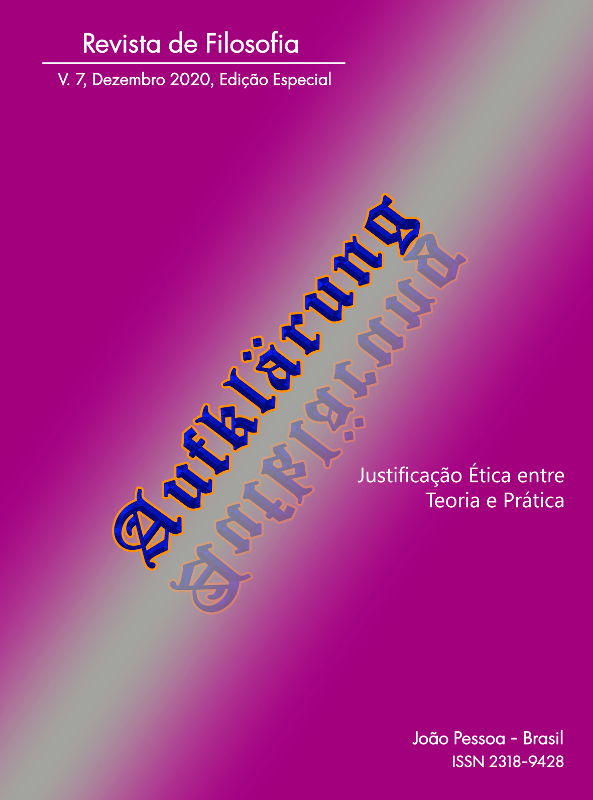The theory of knowledge as critical social theory in Habermas
DOI:
https://doi.org/10.18012/arf.v7iesp.56954Keywords:
Habermas, Positivism, Theory of Knowledge, Critical Social Theory, Interest of ReasonAbstract
By confronting himself with the reduction of theory of knowledge in a positive theoretical Science performed by August Comte’s positivism, Habermas is challenged to streamline his argumentations in terms of a readjustment of the theory of knowledge as a critical social theory. We want to reconstruct his argumentations in order to comprehend that the concept of interest of reason is the fundament to the formulation of his critical social theory, especially in what concerns to the connection between knowledge and interest as a methodological discovery that has the purpose of serving as a regulative paradigm. From this, we will develop the correlative idea of self-reflection from psychoanalysis, which intends to extract from positivism itself a therapeutic orientation. By walking in this argumentative way we intend to come to the theory of knowledge as a critical social theory, as proposed by Habermas.
Downloads
References
HANSEN, Gilvan Luiz, Os Riscos da Crítica da Sociedade, in: Crítica – Revista de Filosofia. Londrina: EDIUEL, Vol. 3, n. 12, 1998. (p. 353-371)
HABERMAS, J. Conhecimento e Interesse. Tradução: José N. Heck. Rio de Janeiro:Editora Guanabara, 1987
Additional Files
Published
How to Cite
Issue
Section
License
Journal general policy
1.This journal works under a Creative Commons License aplied to online journals. That icence can be read in the following link: Creative Commons Attribution 4.0 International (CC BY 4.0).
2.Accordingly to this License, a)the journal declares that authors hold the copyright of their articles without restrictions, and they can archieve them as post-print elsewhere. b)the journal allow the author(s) to retain publishing rights without restrictions.
Metadata Policy for information describing items in the repository
1. Anyone may access the metadata free of charge at anytime.
2.The metadata may be re-used in any medium without prior permission, even commercial purposes provided the OAI Identifier or a link to the original metadata record are given, under the terms of a CC BY license refered for the Journal.







































